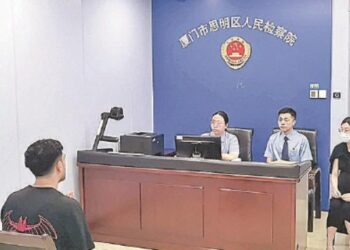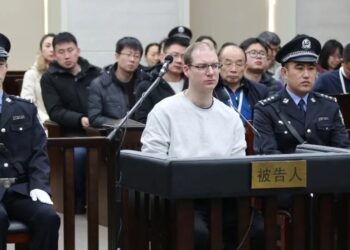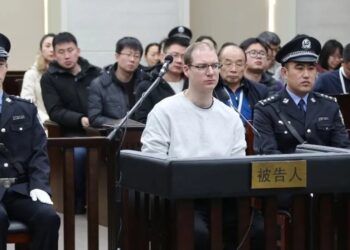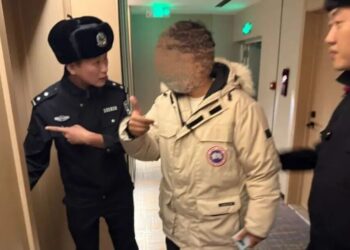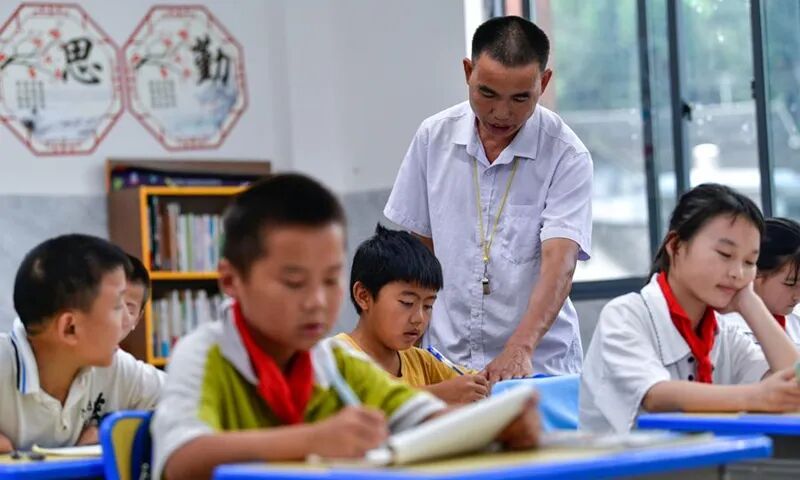
China’s Ministry of Education (MOE) has unveiled new policies aimed at reducing the excessive non-teaching workload of primary and secondary school teachers, as reported by media on Monday. These measures target key sources of stress by implementing practical and enforceable solutions, such as restricting mandatory participation in non-educational activities and curbing overreach from administrative bodies.
Eight Key Measures Outlined
The official notice details eight core strategies to streamline teachers’ responsibilities:
- Stricter document control – Establishing uniform standards for issuing and reviewing school-related documents, ensuring assigned tasks align with teachers’ primary duties.
- Supervision checklist management – Optimizing oversight procedures to minimize redundant inspections.
- Campus social affairs regulation – Refining the “whitelist” system for external activities permitted on school grounds.
- Teacher secondment limits – Tightening rules on temporarily reassigning teachers, permitting it only when essential and capping durations at six months.
- Data reporting simplification – Reducing the burden of frequent and unnecessary data submissions.
- After-school service support – Enhancing safeguards for after-school programs while preventing their misuse.
- Monitoring improvements – Strengthening verification mechanisms to ensure policy compliance.
- Inter-departmental coordination – Improving collaboration to address systemic issues.
These steps aim to create a standardized, nationwide framework for reducing teachers’ non-essential workloads, according to China Central Television (CCTV).
Detailed Policy Highlights
- Document Review Mechanism: A new consistency-check system will assess whether issued tasks fall within teachers’ core teaching responsibilities.
- Whitelist System: Provincial authorities must submit annual lists (capped at 10 items) of permitted non-educational campus activities, which will be publicly disclosed. Schools may host no more than six such events per semester.
- Teacher Secondment Rules: Higher-level agencies are generally barred from reassigning schoolteachers, with exceptions limited to six months.
- Off-Duty Protections: Teachers cannot be mandated to work during weekends, holidays, or vacations.
- After-School Services: These must operate only on school days, ending at local off-work hours, with no forced linkage to teachers’ promotions or awards.
Expert and Teacher Perspectives
Education experts and frontline teachers emphasized the pervasive issue of non-teaching burdens.
- •Dr. Chu Zhaohui, a researcher at the National Institute of Education Sciences, noted that administrative tasks—such as inspections, meetings, and paperwork—often consume most teachers’ time. “Some teachers spend only about one-third of their time on actual teaching due to excessive documentation,” he said.
- An anonymous Beijing middle school teacher revealed that class advisors often face additional duties, including nighttime dormitory checks, cafeteria supervision, and post-school cleaning oversight.
MOE’s Rationale and Priorities
An MOE official explained that the measures were developed after analyzing regional practices and identifying persistent challenges. The reforms prioritize:
- Eternal Interference Control – Blocking unrelated tasks at their origin and setting clear boundaries for non-teaching demands.
- Internal Governance Optimization – Leveraging technology and standardized processes to improve efficiency within the education system.
- Accountability Enforcement – Strengthening oversight and clarifying responsibilities to ensure policy implementation.
“The goal is to ensure teachers can dedicate their time and energy to their primary mission: fostering moral integrity and nurturing talent,” the official stated.

